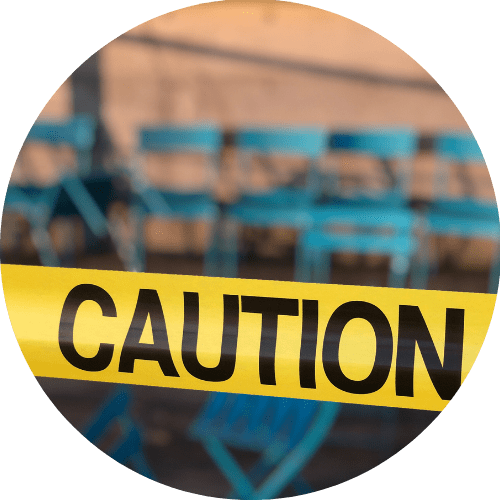The most recent group online coaching meeting hosted by Dr. Tro’s Medical Weight Loss & Direct Primary Care centered its discussion around The Ways Socialization Affects Your Food Environment. Dr. Tro Kalayjian, DO, and Health Coaches Amy Eiges and Brian Wiley, spent a significant portion of the call discussing this issue about what to expect, how to prepare, and how to deal with these social situations.
Group meetings are held via Zoom every Tuesday at 5:30 p.m. EDT.
- Visit the Group Coaching page for more information or to sign up.
- The meeting on Tuesday, August 4 is free to all—register here.
- Also, if you haven’t yet read “Are You Hungry?” by Amy Eiges, I urge you to do so.
The more than 50 participants on the Zoom call listened to Amy, Brian and Tro mix practical advice and tips with scientific studies as they explained times when people often falter, such as the holidays. Reasons often include stress and simply being around more food.
Amy and Brian kicked off the call talking about their personal experiences. They talked about their journeys dealing with social situations and tips on how to stay the course, Dr Tro then talked about an interesting Framingham study demonstrating how obesity spreads in social networks, evidence that obesity is a social disease.
Tro discussed other studies that support Framington study with examples of behaviours observed such as our tendency to eat more when we are in social settings, just because food is available, and how people will eat more around people we are comfortable with then when we’re alone.
Dr Tro, Amy & Brian then talked about practical strategies they use to survive these situations such as eating before you go, researching the menu before arriving, and planning to hang out with others who are also dieting for support. One of the most important things is to not try to rely on willpower. These situations are very difficult to white knuckle through, and it’s best to prepare in advance the best you can.
As always, participants had the chance to ask questions (directly on the Zoom call, in advance via email, or through Zoom chat), and Amy, Brian and Dr. Tro took turns responding. Participants can submit questions in advance to webinars@doctortro.com.
Some important takeaways included the following:
- Social situations do not have to be bad experiences—there are many simple ways to put defenses in place to prepare and make these situations stress-free and enjoyable.
- Self advocacy can be difficult in situations when one is around family and friends. Often the ones closest to us can be the most critical. Be upfront and honest about what and why you’re doing what you’re doing, and you will quickly find out who your allies and non supporters are. Surround yourself with allies and avoid non supporters.
- Don’t be afraid to ask for options at restaurants and social gatherings that cater to your needs. Order the burgers without the buns, and order vegetables instead of fries, Consider ordering two steaks and ask the waiter to leave the bread off the table. Do what it takes to make you feel good and don’t be ashamed. You are doing this for you not to please others.
- Consistency is key. The longer you advocate for yourself, the more likely it is that family, friends and coworkers will get the message that you won’t change. These situations will get easier—there will always be ones that don’t give up, but they can be tuned out.
The following studies were shared during the meeting:
- The Spread of Obesity in a Large Social Network over 32 Years – The Framingham study demonstrates how obesity spreads in social networks (see video below).
- It’s my party and I eat if I want to. Reasons for unhealthy snacking – This study shows how 50% of self-reported “unhealthy snacking behavior” is due to social issues like special occasions, social pressure, and opportunity-induced eating.
- Effects of social influence on eating in couples, friends and strangers – Study discusses the effects of social influence on eating in couples, friends and strangers.
- Effects of the Presence of Others on Food Intake: A Normative Interpretation – This study proposes that in the presence of palatable food, and in the absence of satiety, people will look to what is considered normal to govern how much they will eat.
These studies demonstrate how social pressure and situations can be detrimental to your long term goals if you do not advocate for yourself and prepare to get through them.
According to the Framingham study:
- A person’s chances of becoming obese increased 57% if he/she had a friend who became obese.
- Among pairs of adult siblings, if one sibling became obese, the chance that the other would become obese increased 40%.
- If one spouse became obese, the likelihood that the other would become obese increased 37%.
The group meetings are held via Zoom every Tuesday at 5:30 p.m. EDT. Visit the Group Coaching page for more information or to sign up. The meeting on August 4 is free to all—register here. The topic of our August 4 meeting is “Understanding Disease, Metabolic Health and Lifestyle Choices Beyond Food”





